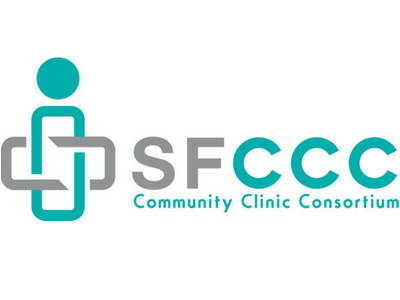Celebrating Long-Time Provider, Dr. Dawn Harbatkin, for National Health Center Week
"This is the most rewarding work you will ever do."
The incredible value Health Centers bring to their patients and community is because of health center heroes – individuals who are committed to providing high quality care to patients in need. Health Center Heroes are dedicated to the Community Health Center Movement and deserve to be recognized. Today, join SFCCC in recognizing Dr. Dawn Harbatkin and her commitment to providing high quality care to patients in need. Check out SFCCC's interview with Dr. Harbatkin and find out why she loves what she does!
How long have you been working in community health?
During my residency, I did my continuity clinic at a Federally Qualified Health Center (FQHC). So if you count that, I have been in community health since 1994 (24 years). If you mean working after completing training it would be since 1997 (21 years). Nineteen of those years were at LGBT-focused community health centers; 7 in NYC and 12 in San Francisco.
What is the best part about your job?
My favorite part of my job is the people I work with – both staff and patients. I think this work attracts a group of mission-driven, hard-working people who really want to make a difference in people’s lives; they aren’t just showing up for the paycheck. In terms of the patient care, the patients I have seen are choosing to come to a CHC – it is where they feel safe and comfortable. It feels great to be able to create that environment for people and get to know them over a long period of time.
I also really believe in community health centers – that it is our role not just to provide healthcare, but to be truly be a part of the community – participating in community events, doing advocacy on behalf of our community, working with other institutions (health and otherwise) to improve the health and well-being of the community.
Are there any patient stories that stand out to you?
I started seeing Amy*, an older African American woman during my first few weeks at Lyon-Martin. She had HTN [hypertension] and we were managing her blood pressure. After her first month working with me, she asked if I would be willing to take on the care of her mother, who was in her 90s and had dementia. She would bring her in a wheelchair. And sometimes her mom would talk with me; other times she wasn’t as verbal. We eventually put her on hospice and she was able to die at home. I went to the funeral and met her family who were very excited that “the doctor” had cared enough about their mother to come grieve with them.
Amy and I continued to work together over the next 10 years. [...] We worked together to manage her high blood pressure and her migraines. I discovered that she had claudication and saw her through her vascular surgery. And then she came in to let me know that her period had returned, and she was quickly diagnosed with advanced endometrial cancer. Even though the oncology team took over at that point, she would keep in touch and let us know how she was doing. She died from her cancer within the year.
I had a very hard time picking a patient story to tell. Most of the patients that I have enjoyed the most have been challenging – they have mental illness or substance use disorders or both. Their stories aren’t smooth or easily told. Some got significantly better, but most didn’t. And many died. But the relationships that I have had with them have been built on genuine, meaningful attachments for us both. I remember taking care of 2 lesbians in their 70s who had been together for 50 years and were so excited to have a lesbian doctor who would treat them as a couple. I took care of a woman with significant depression and anxiety who took a handful of Vicodin in front of me during our last visit together before I moved from NYC to San Francisco. I took care of a man with an addiction to benzodiazepines who I prescribed so much medication to it scared me, but I knew that this was the way to keep him engaged so that he could live to make a change and over time take less. I hope that these relationships helped my patients. I know they helped me grow and develop confidence in myself as a provider.
*Name changed for patient privacy
If you had any advice to give to providers who want to work in community health, what would it be?
This is the most rewarding work you will ever do. If you decide to do it, plan to stay for a while in one place. It is the longer-term relationships that make the work the most meaningful. You will learn about yourself as a clinician and what it means to be a part of a community. It becomes about so much more than just the science of medicine. You won’t get paid as much and the work isn’t easy. And sometimes you may not like your patients very much because they can’t always contain or control their behavior. But it is an amazing opportunity to impact people’s lives.
Why have you continued to work in community health?
There isn’t another kind of work that I would rather do.
